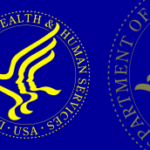MOSCOW, Idaho — Bryan Kohberger’s decision to accept a plea deal, following a failed attempt to avoid the death penalty, marks a pivotal moment in the case concerning the tragic deaths of four University of Idaho students. Kohberger, 30, is expected to plead guilty to the murder charges on Wednesday before Judge Steven Hippler in Boise, potentially ending a legal saga that has gripped the small community of Moscow, Idaho, since November 2022.
His attorneys had previously sought to prevent prosecutors from pursuing the death penalty, citing various arguments including international law and Kohberger’s autism diagnosis. However, these efforts were unsuccessful, leading to the current plea deal, which aims to spare Kohberger’s life while ensuring he spends the rest of his life in prison.
The Families’ Reactions: A Divide in Grief
The plea deal has elicited mixed reactions from the victims’ families. The Chapin family, represented by Christina Teves, supports the agreement, viewing it as a step towards closure. Ben Mogen, father of victim Madison Mogen, expressed relief, stating, “We can actually put this behind us and not have these future dates and future things that we don’t want to have to be at.”
In stark contrast, the Goncalves family has voiced their anger over the plea deal, criticizing the state for what they perceive as a failure to deliver justice. They have been vocal on social media, urging supporters to contact the Ada County Courthouse and demanding full accountability from Kohberger, including a confession and details about the crime.
“Bryan Kohberger facing a life in prison means he would still get to speak, form relationships, and engage with the world,” wrote Kaylee Goncalves’ sister, Aubrie. “Meanwhile, our loved ones have been silenced forever.”
Legal Proceedings and Implications
In Idaho, judges have the authority to reject plea agreements, though such rejections are rare. If the plea is accepted on Wednesday, Kohberger’s sentencing is expected later this month. The trial, initially set for August, was relocated to Boise due to extensive pretrial publicity.
Kohberger, a former criminal justice graduate student at Washington State University, was arrested in Pennsylvania weeks after the murders. Investigators linked him to the crime through DNA evidence found on a knife sheath at the scene. Autopsies revealed that the victims were likely asleep during the attack, with some showing defensive wounds.
The Investigation: A Complex Puzzle
The investigation into the murders was extensive, involving genetic genealogy and cellphone data analysis. Authorities tracked a white sedan seen near the crime scene and used surveillance footage to place Kohberger in the vicinity multiple times before the killings. Despite these efforts, a clear motive for the murders has not been established, and questions remain about why two roommates in the house were spared.
Last week, Judge Hippler dismissed the defense’s attempt to implicate other individuals, stating that the evidence was “entirely irrelevant.” This decision further narrowed the focus on Kohberger as the primary suspect.
Looking Forward: The Impact of the Plea Deal
The plea deal, if accepted, will close a significant chapter in this case but leaves lingering questions about justice and closure for the victims’ families. The Goncalves family, in particular, continues to push for more answers and accountability, underscoring the emotional complexity surrounding the resolution of such high-profile cases.
As the community of Moscow grapples with the aftermath, the legal proceedings against Kohberger highlight broader discussions about the death penalty, mental health considerations in criminal cases, and the pursuit of justice in the American legal system.
The outcome of Wednesday’s hearing will not only determine Kohberger’s fate but also set a precedent for how similar cases might be handled in the future, balancing the scales of justice with the emotional realities faced by those left behind.
About The Author
 Son of ‘El Chapo’ to Plead Guilty in U.S. Drug Trafficking Case
Son of ‘El Chapo’ to Plead Guilty in U.S. Drug Trafficking Case Israeli Strike on Gaza Cafe Leaves Families in Mourning
Israeli Strike on Gaza Cafe Leaves Families in Mourning Harvard Faces Civil Rights Violation for Ignoring Anti-Semitic Harassment
Harvard Faces Civil Rights Violation for Ignoring Anti-Semitic Harassment 20 States Sue Trump Administration Over Medicaid Data Release
20 States Sue Trump Administration Over Medicaid Data Release Bucks County Woman Implicated in $1 Million Medicaid Fraud Case
Bucks County Woman Implicated in $1 Million Medicaid Fraud Case